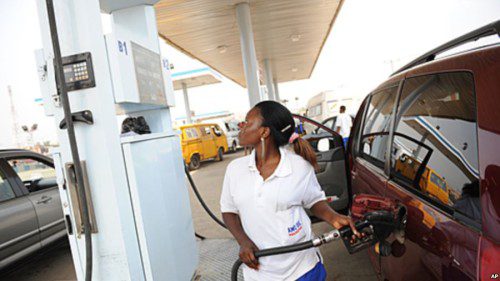Breaking News
Investors raise $50 million to boost the use of CNG in Nigeria — FG
The Presidential Initiative on Compressed Natural Gas Programme, or PCNGI, Programme Director, Mr. Michael Oluwagbemi, stated at a stakeholders’ meeting on the advantages of adopting CNG as a cost-effective and sustainable energy alternative for transporters, that the government is also collaborating with banks to provide funding for the programme.

In order to facilitate the development of infrastructure necessary for the use of compressed natural gas (CNG) in the transportation sector, investors have raised $50 million over the last six months, the Federal Government (FG) revealed yesterday.
The government also announced that, in an effort to entice carriers to convert to CNG, which may save up to 77 percent in energy expenses, it is providing a 50 percent discount on conversion kits, which range in price from N1.2 million to N1.5 million.
The Presidential Initiative on Compressed Natural Gas Programme, or PCNGI, Programme Director, Mr. Michael Oluwagbemi, stated at a stakeholders’ meeting on the advantages of adopting CNG as a cost-effective and sustainable energy alternative for transporters, that the government is also collaborating with banks to provide funding for the programme.
The forum which was organised by Portland Gas and PCNGI, had the theme: Driving sustainable transportation: Accelerating CNG adoption in Nigeria.
Represented by Mr. Tosin Coker, Oluwagbemi said the government will, in the coming days, roll out buses and tricycles powered by CNG to support public transportation in Abuja.
According to him, “In December 2023, we hosted our first investor forum, which saw tremendous participation from companies now investing in the sector. I am pleased to report that well over $50 million has been mobilised directly by the sector since then more than any amount mobilised in the last ten years combined. We are also enabling ordinary Nigerians, particularly transport operators, to convert their vehicles.
“Last month, on May 29, we announced the Conversion Incentive Program, making it easier for Nigerians to adopt CNG. This effort is supported by private sector partners, development funds and banks, all eager to finance this transformative initiative.
“More importantly, in an effort to reduce the cost of public transport, we are catalysing the sector by supporting the introduction of CNG buses and tricycles (kekes). In the next few days, you will witness these buses on the streets of Abuja, even as we also start to make conversion kits available at 50% discount to the transport sector”, he added.
Speaking on the benefits of switching to CNG fuel, the Managing Director, Portland Gas Limited, Mr. Folajimi Mohammed, noted that besides being cheaper than petrol and diesel, CNG provides more mileage for transporters and vehicle owners.
Mohammed explained that the technology allows for the retention of the old petrol/diesel system, allowing owners to switch fuel when needed.
He said: “CNG is a cleaner-burning fuel, resulting in lower emissions and better air quality. CNG is generally cheaper than petrol, leading to significant fuel cost savings. CNG vehicles have a longer engine life due to the cleaner burning properties of the fuel.
“The conversion involves installing a CNG tank, fuel lines, regulators, and other accessories in the vehicle. Certified CNG conversion centres handle the entire conversion process, which typically takes three hours. The vehicle’s existing petrol system is kept intact, allowing the driver to switch between petrol and CNG as needed.
“Conversion kits are available for dedicated CNG and bi-fuel. A hybrid system allows the vehicle to run on either natural gas as the primary fuel or gasoline as the reserve fuel. When the natural gas runs out, the engine is switched over to gasoline either manually with a dashboard switch, or automatically, dual fuel vehicles are well suited for applications in which much of the driving is in an urban area, serviced by a CNG fill station, but where occasional long-distance trips are required”.
He noted that the “cost of conversion can vary depending on the vehicle model, size of the CNG tank, and the conversion centre, but it typically ranges from N1.2m to N1.5m.










